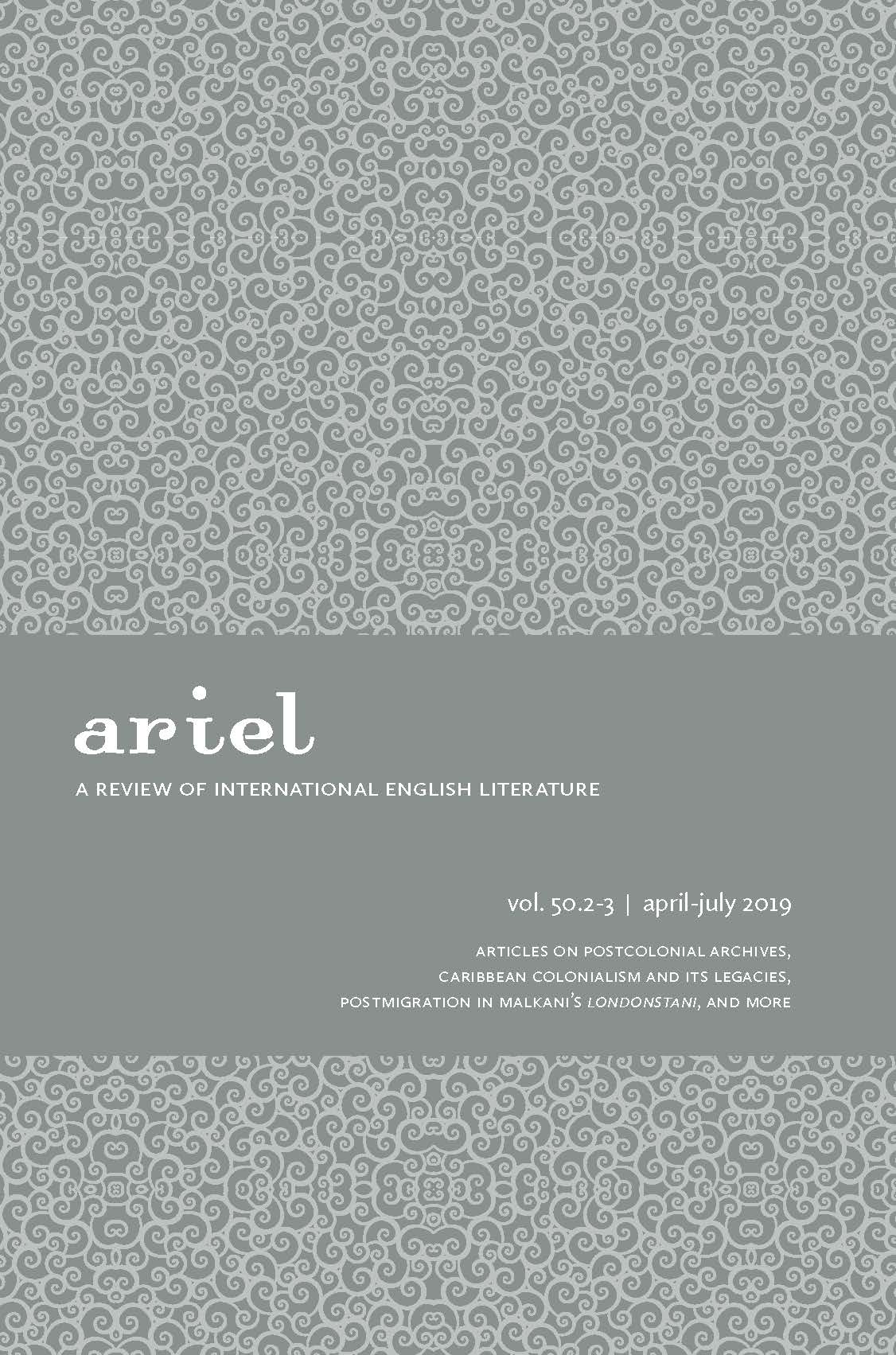The Archival Politics of the Postcolonial Writer’s Collection: A Case Study in Literary Value and Amos Tutuola
Keywords:
Amos Tutuola, Harry Ransom Center, value, archive, writer’s collection, postcolonial studiesAbstract
This essay takes as its starting point the problem posed by the increasing number of literary archives of the papers of “postcolonial writers” that have been acquired by American and European academic institutions. After registering the ethical problems posed by this trend, I argue that the existence of such archives represents an opportunity for postcolonial studies to interrogate its own archival politics in relation to constructions of literary value. Using the Amos Tutuola Collection (located at the Harry Ransom Center at the University of Texas at Austin) as a case study, I demonstrate that while this archive’s form makes certain claims for its value, a study of the author’s letters, manuscripts, and documents contained therein suggests that alternative values are latent within it. I discuss how these values differ from those typically sought by postcolonial critics, and conclude by considering how a hypothetical digitized Tutuola collection might allow for the realization of new values. Inquiry into forms of value — and not simply the identification of existing ‘literary’ ones — is, I suggest, an important aspect of the continued relevance of writers’ collections to postcolonial studies.


